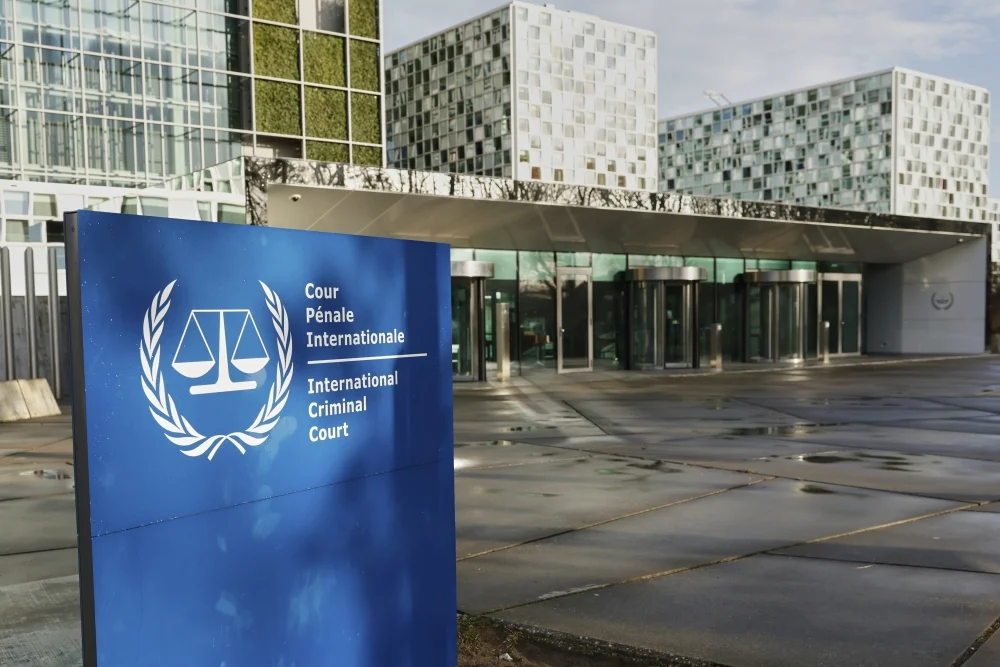
Legal Battle Erupts Over Trump’s Sanctions on International Criminal Court, Human Rights Advocacy at Risk
In a high-stakes clash at the intersection of global justice and American policy, two U.S. human rights advocates are challenging former President Donald Trump’s executive order imposing sweeping sanctions on the International Criminal Court (ICC). The case, now filed in federal court, raises urgent questions about freedom of speech, the accountability of world leaders, and the U.S. role in international human rights law.
At the heart of this unfolding legal battle are Matthew Smith, a Maine-based CEO of Fortify Rights, and Akila Radhakrishnan, an international lawyer from New York. Both advocates allege they have been forced to halt crucial collaboration with the ICC out of fear of harsh penalties, including criminal prosecution and civil fines. Represented by the American Civil Liberties Union (ACLU) and its Maine chapter, they assert that Trump's order, enacted in February, is ‘unconstitutional and unlawful,’ violating their First Amendment rights by cutting off constitutionally protected communication with ICC prosecutors.
The contentious executive order followed the ICC’s approval of arrest warrants for Israeli Prime Minister Benjamin Netanyahu and former defense minister Yoav Gallant, in connection with alleged war crimes and crimes against humanity in Gaza. Trump’s response was severe: economic and travel sanctions targeting ICC chief prosecutor Karim Khan and anyone in the U.S. providing ‘services and material support’ to his office. The order also authorized broader sanctions against ICC staff and even directed the Treasury Department to identify more individuals for targeting, signaling a possible expansion of the campaign against the court.
According to court filings, Smith has provided the ICC with evidence and analysis concerning genocide and forced deportation of Myanmar’s Rohingya population, working directly with refugees and investigators. In a powerful statement issued via the ACLU, Smith said, “Because of this order, I’ve been forced to stop helping the ICC investigate horrific crimes committed against the people of Myanmar, including mass murder, torture and human trafficking. This executive order doesn’t just disrupt our work — it actively undermines international justice efforts and obstructs the path to accountability for communities facing unthinkable horrors.”
Radhakrishnan, meanwhile, has worked as an advocate on sexual and gender-based violence, especially amid Taliban abuses in Afghanistan. She described the chilling effect of Trump’s order: “I’m bringing this case to prevent my own government from punishing me for trying to hold the Taliban accountable for its systematic violence against women and girls from Afghanistan.” Documents reveal she recently accompanied Afghan women to directly meet with the ICC’s investigative team in The Hague, amplifying the real-world impact of U.S. sanctions on survivors’ access to global justice venues.
This legal action is not without precedent. In 2021, a similar court battle led to a federal judge barring enforcement of Trump’s sanctions against law professors who supported the ICC, suggesting the advocates may have a strong case under the First Amendment. The underlying tension, however, remains: while the ICC was established in 1998 as the court of last resort for prosecuting the gravest international crimes, the U.S.—ironically a founding participant—has never fully recognized its authority, and both the U.S. and Israel currently stand apart from the court’s official membership.
As the lawsuit unfolds in Maine’s federal court, the outcome could reverberate far beyond America’s shores—testing the limits of executive power and the nation’s long-standing commitment to global justice. Will the U.S. reaffirm advocates’ right to aid international courts investigating atrocities—or will this chilling effect on human rights work become the new normal?
Readers, what do you think? Do you believe the U.S. should support international efforts for justice, or is there a place for executive control over foreign policy priorities? Share your views and join the conversation below.